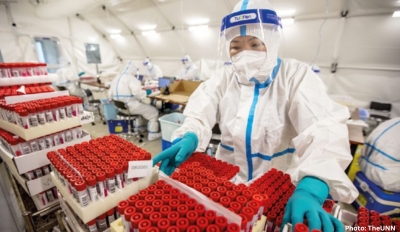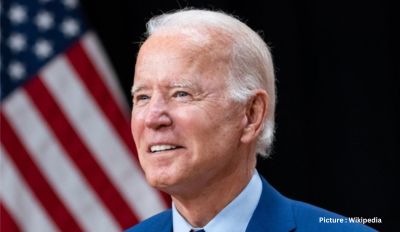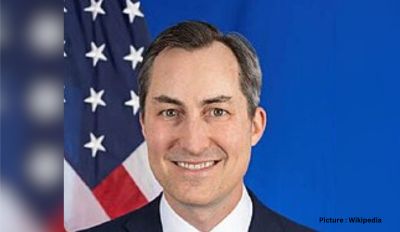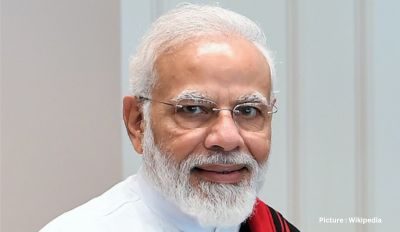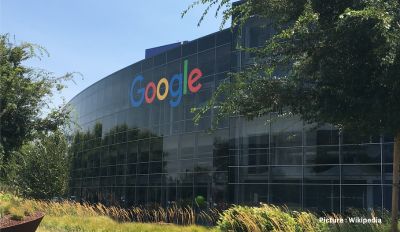Germany’s center-left Social Democrats won the biggest share of the vote in a national election Sunday, narrowly beating outgoing Chancellor Angela Merkel ‘s center-right Union bloc in a closely fought race that will determine who succeeds the long-time leader at the helm of Europe’s biggest economy. Media reports here suggested, Germany is embarking on a potentially lengthy search for its next government after the center-left Social Democrats narrowly beat outgoing Chancellor Angela Merkel’s center-right bloc in an election that failed to set a clear direction.
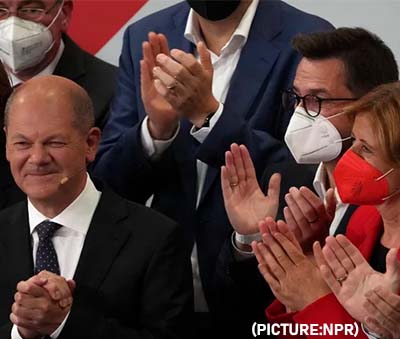 SPD leader Olaf Scholz said he had a clear mandate to form a government, while his conservative rival Armin Laschet remains determined to fight on. The Social Democrats’ candidate Olaf Scholz, the outgoing vice chancellor and finance minister who pulled his party out of a years-long slump, said the outcome was “a very clear mandate to ensure now that we put together a good, pragmatic government for Germany.”
SPD leader Olaf Scholz said he had a clear mandate to form a government, while his conservative rival Armin Laschet remains determined to fight on. The Social Democrats’ candidate Olaf Scholz, the outgoing vice chancellor and finance minister who pulled his party out of a years-long slump, said the outcome was “a very clear mandate to ensure now that we put together a good, pragmatic government for Germany.”
The two parties have governed together for years. But Mr Scholz says it is time for a new coalition with the Greens and liberals. Preliminary results gave his party a narrow election win over the conservatives who suffered their worst-ever performance. Despite getting its worst-ever result in a federal contest, the Union bloc said it too would reach out to smaller parties to discuss forming a government, while Merkel stays on in a caretaker role until a successor is sworn in.
Election officials said early Monday that a count of all 299 constituencies showed the Social Democrats received 25.9% of the vote, ahead of 24.1% for the Union bloc. No winning party in a German national election had previously taken less than 31% of the vote. Armin Laschet, the governor of North Rhine-Westphalia state who outmaneuvered a more popular rival to secure the nomination of Merkel’s Union bloc, had struggled to motivate the party’s base and suffered a series of missteps. “Of course, this is a loss of votes that isn’t pretty,” Laschet said of results that looked set to undercut by some measure the Union’s previous worst showing of 31% in 1949. But he added that with Merkel departing after 16 years in power, “no one had an incumbent bonus in this election.”
Laschet told supporters that “we will do everything we can to form a government under the Union’s leadership, because Germany now needs a coalition for the future that modernizes our country.” Both Laschet and Scholz will be courting the same two parties: the environmentalist Greens, who were third with 14.8%; and the pro-business Free Democrats, who took 11.5% of the vote. The Greens traditionally lean toward the Social Democrats and the Free Democrats toward the Union, but neither ruled out going the other way.
The other option was a repeat of the outgoing “grand coalition” of the Union and Social Democrats that has run Germany for 12 of Merkel’s 16 years in power, but there was little obvious appetite for that after years of government squabbling. “Everyone thinks that … this ‘grand coalition’ isn’t promising for the future, regardless of who is No. 1 and No. 2,” Laschet said. “We need a real new beginning.” The Free Democrats’ leader, Christian Lindner, appeared keen to govern, suggesting that his party and the Greens should make the first move. “About 75% of Germans didn’t vote for the next chancellor’s party,” Lindner said in a post-election debate with all parties’ leaders on public broadcaster ZDF. “So it might be advisable … that the Greens and Free Democrats first speak to each other to structure everything that follows.”
Baerbock insisted that “the climate crisis … is the leading issue of the next government, and that is for us the basis for any talks … even if we aren’t totally satisfied with our result.” Due to Germany’s complicated electoral system, a full breakdown of the result by seats in parliament was still pending. Germany’s leading parties have significant differences when it comes to taxation and tackling climate change. Foreign policy didn’t feature much in the campaign, although the Greens favor a tougher stance toward China and Russia.
Whichever parties form the next German government, the Free Democrats’ Lindner said it was “good news” that it would have a majority with centrist parties. “All of those in Europe and beyond who were worried about Germany’s stability can now see: Germany will be stable in any case,” he said. In two regional elections also held Sunday, the Social Democrats looked set to defend the post of Berlin mayor that they have held for two decades. The party was also on course for a strong win in the northeastern state of Mecklenburg Western-Pomerania. For the first time since 1949, the Danish minority party SSW was set to win a seat in parliament, officials said. Likely coalitions in Germany will either see the SPD or CDU/CSU forming a government with the Green Party, which took 14.8% of the votes, or the liberal Free Democratic Party (FDP), with 11.5%.
The party had campaigned on a message of stability for the country after Merkel, seen as a steady pair of hands over the past nearly 16 years, steps down. But it is now coming to terms with what it itself called a bitter night of losses. Merkel’s own seat in northeast Mecklenburg-Vorpommern has flipped to the Social Democrats after the outgoing chancellor held it for 31 years. Merkel, who over 16 years cemented her position as one of the world’s most successful political leaders, will stay in job until a coalition deal is negotiated — and that could take months. After Merkel’s election win in September 2017, it took more than five months for a government to be formed.
Merkel, who has won plaudits for steering Germany through several major crises, won’t be an easy leader to follow. Her successor will have to oversee the country’s recovery from the coronavirus pandemic, which Germany so far has weathered relatively well thanks to large rescue programs.

